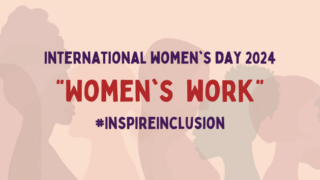More than a quarter (26%) of women employed in schools, hospitals, care homes, town halls, police stations and other key services in the South West have had their requests to work flexibly denied, according to a UNISON survey released today (Thursday).
The findings – based on responses from almost 3,000 women working in the public sector across the region – suggest employers are being ‘inconsistent, rigid and unimaginative’ by denying individuals the flexibility needed, says UNISON.
The survey is released to coincide with the start of the union’s annual women’s conference in Brighton later today. More than one in four (27%) of the women who were told they couldn’t alter the way they worked reported their requests had been denied multiple times.
The data shows that over half (51%) of respondents had requested some flexibility in their jobs so they could achieve a better work-life balance. Nearly two fifths (39%) had done so to look after their mental health, 35% to fit around their childcare needs and 31% for physical health reasons.
The women were given a range of explanations by employers as to why it wasn’t possible for them to work flexibly. Two fifths (40%) were told it would affect the quality of the service provided and 30% that there wouldn’t be enough colleagues to cover their duties. A fifth (20%) were denied any flexibility because their managers saidit would prompt colleagues to ask for similar working patterns. Around one in eight (13%) were given no reason at all.
From this April, a new flexible-working law comes into effect in England, Scotland and Wales. This gives employees a statutory right to request flexible working from their first day in work (as opposed to the current situation that requires a six-month wait).
While UNISON believes this is a step in the right direction, the union wants more to be done to allow employees to work flexibly. This is because it’s all too easy for employers to turn down flexible working requests, says UNISON. For example, one woman said she’d been asking to work flexibly for five years but all her requests had been rejected.
In the survey, over a quarter (26%) of women also said the law didn’t go far enough. And more than half (53%) thought there should an automatic right to flexible working.
Commenting on the findings, UNISON South West regional secretary Kerry Baigent said: “It’s disheartening to see many employers continuing to deny their staff the opportunity to work flexibly. They have nothing to lose and everything to gain.
“But sadly many women who find they need to inject some flexibility into their working lives are coming up against employers with inconsistent, rigid and unimaginative attitudes.
“While there’s no one-size-fits-all solution, some form of flexible working is achievable in most workplaces.
“Helping women to balance work with caring commitments not only improves morale, but can also help employers fill hard-to-recruit jobs. And with fewer vacancies, services provided to the public are likely to improve.
“Too many employers are still turning down flexible working requests, which means the right to request is pretty meaningless for many women. The right to work flexibly from day one would be beneficial for staff and employers alike, and help bring workplaces into the 21st century.”
Women told UNISON of their struggles to work flexibly. One disabled woman, whose employer kept rejecting her requests for flexible adjustments to her hours, said her condition had deteriorated and she’d had to go on long-term sick leave.
Others described requests being rejected the same day they were submitted, or being told to use annual leave, resign or buy their own IT equipment if they wanted to work in a different way. As a result, many women had simply resigned, even quitting secure jobs for less-reliable agency or zero-hours roles in some cases.
UNISON is pushing for all employers to include flexible working options in job adverts to help ensure more requests are agreed.






